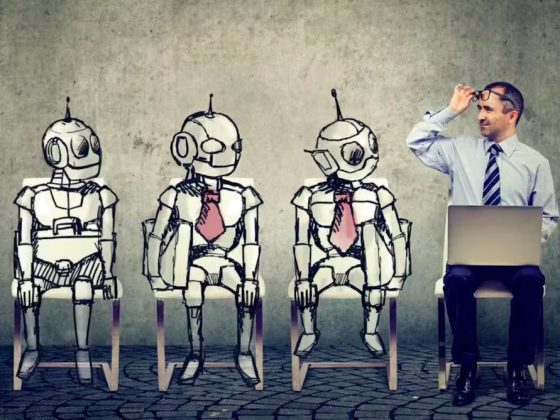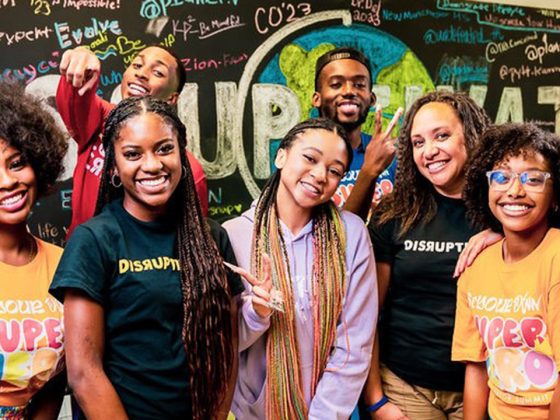- The jobs market may assume a new equilibrium in 2024 after the turbulence of the post-COVID years.
- Skills are the key to workers in all industries and at every level asserting a new sway in their relationship with employers.
- As business seeks growth, investments in industry cannot succeed without equivalent investment in people.
Balance is always a hot topic in January for New Year’s resolutions. Whether seeking to find more balance between work and home, or in our health, many of us set out to achieve the perfect equilibrium. The last few years have seen labour markets off-balance – with the deep lows of COVID and the swinging highs of the recovery as employers hired at speed to bring their workforce back.
As we look ahead to 2024, we need some calm after the storm: for hiring to moderate; for the delicate balance between workers and employers to be reset; and for the new era of work to emerge.
From our partners:
Each day, ManpowerGroup tracks employment data in real-time, scanning millions of job postings to identify the trends that are shaping the future of work and the future of workers. We also speak with thousands of candidates and employers – to understand what makes workers tick and the skills employers are looking for. Looking ahead to 2024 and beyond, these are my seven predictions for how this new era of work will emerge:
1. Concentrated demand
Right now, US employers are laser-focused on hiring in the following three main areas. The hot hiring we were seeing post-pandemic is becoming a thing of the past, and measured hiring for in-demand skills is our new normal:
- Jobs that help people. Medical hiring remains high, with registered nurses still being the most in-demand role in our country, and social assistance, radiologists and medical assistants all in the top 20. New roles are emerging in medicine, too: demand for medical data scientists is up more than 300% year-on-year. This focus on health and well-being is not going away, with those with medical skills in line to be in high demand for the long term.
- Jobs that meet the needs and wallets of consumers. The value of experiences and treating ourselves and those we love only strengthens in tough economic times, with the emphasis on wallet-friendly options. We will continue to see robust demand for hospitality, especially in services that support both in real life and online – think Amazon, Pizza Hut, and food delivery company Doordash as top employers for the year ahead.
- Jobs that transform companies – because every business is a tech company. App developers are holding strong as the number two most in-demand role. Companies are still working out the talent they will need to drive AI; this hiring will be across the board. The top employers for AI/machine learning specialists today include Walmart and Doordash.
2. Skills remain key
Looking ahead, it still costs employers more to hire new talent than upskill those they have: Job changers now see 8% pay growth, stayers 5%. We expect to see much greater focus on talent mobility – moving people to new roles within the organization, betting on potential vs. past performance. With 77% of employers struggling to find the skills they need, helping build the agility of the workforce you have, so people can move laterally, is critical.
3. Females fuel the future
When the pandemic hit, millions of women left the workforce, an exodus many feared would take decades to recover from. However, in just three years, employment levels for women are back to where they were pre-pandemic.
Among 25-54-year-old women, the labour-force participation rate has hit record highs. As a mother of three daughters, I am delighted this next generation has jumpstarted brand new careers, advocated for better pay and benefits, and taken advantage of remote opportunities. Now, let’s make sure they are not left behind as the green and tech transformations accelerate – women need to be represented in growth jobs that will surge in 2024 and beyond.
4. Green-collar is the new blue-collar
Along with the implementation of generative AI, the transition to green will be the next great labour market revolution. From finance to manufacturing, roles will be transformed. Our own data shows while many people are optimistic about their role in this green future, many are not. As employers, we need to continue to bring people along during times of momentous change – showing workers what the future will look like, guiding them to upskill and reskill, and ensuring green jobs are attractive to all generations and collars.
5. The rise of the cooperation (vs. the corporation)
As the balance of power levels out between workers and employers, we will see more of a partnership between the two instead of full control in either party’s hands. From the traditional “corporation” where employers held power, we are seeing the emergence of “cooperation” in which workers have an influence and covetable skills, and employers must hear their voices to retain key talent.
6. Big could be the new small
2023 was the year of Main Street, as small and mid-size employers scooped up the talent that had been laid off as Fortune 500 companies resized following the post-pandemic hiring boom. Many large employers have been in a holding pattern as they pause on spending. As we go into earnings season, we’ll begin to see who will take the lead in David vs. Goliath for 2024.
7. Productivity solved
Work doesn’t need to happen in the corporate building for people to be productive. Hybrid is emerging as the new normal, and remote vs. in-office is balancing out. White-collar employers are seeing productivity gains as investments in tech, data quality and employee well-being pay off. The challenge now is for manufacturers to see the same harmony – balancing investments in tech with quality jobs, skills development and work-life balance to attract and retain.
I have been passionate about the topic of the “consumption of work” for some time now – a trend that is truly coming to the fore as people seek to be consumers in their work life, looking for employment on their terms. Following the disruption of the pandemic, people in every industry and at every level are looking to work in ways that suit their needs and their lifestyles.
This new age of adaptability and balance is upon us – let’s hope for a smoother ride for the labour market this year, for even more balance and resilience for workers, and for skills development and adaptable workforces to take centre-stage.
By: Becky Frankiewicz (Chief Commercial Officer and President, North America, ManpowerGroup)
Originally published at: World Economic Forum
For enquiries, product placements, sponsorships, and collaborations, connect with us at [email protected]. We'd love to hear from you!
Our humans need coffee too! Your support is highly appreciated, thank you!








